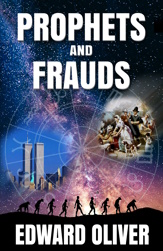Many Old French words can be found by simply looking them up in any modern French dictionary. This glossary lists those words that are no longer a part of the modern French language. New words will be added just as soon as they become available.
OLD FRENCH DICTIONARY
Habitans - (O.F. n. plur.) inhabitants
Hachez - (O.F. a.) hacked, sliced
Hadrie - (O.F. n.) Adrians, Venetians
Hanix - (O.F. n.) difficult effort, grunting, extreme effort
Harangue - (O.F. n.) harangue
Hauste - (O.F. v.) hoist, raise, raise a glass (to drink)
Haut/Haute - (O.F. a.) high, lofty, safe
Hay - (O.F. a.) hated, disliked
Hecatombe - (O.F. n.) slaughter, holocaust
Hectique - (O.F. a.) burned, consumed by fire
Herault - (O.F. n.) master-at-arms
Hermes - (O.F. n.) Hermes
Herne - (O.F. n.f.) a gentile lady
Hesperie - (O.F. n.) West, Westerners, Americans, Dutchmen
Heur - (F. n.) hour
Heureux - (O.F. n.) happiness, contentment
Heurlements - (O.F. n. plur.) howls, moans
Hierarchie - (O.F. n.) hierarchy, leadership
Hister
- (G. n.) Hitler
note: Nostradamus' wordplay on Hitler, combining "Hitler" and "Ister" to give Hitler's name and birthplace.
Hoir - (O.F. n.) heir
Hom - (O.F. n.) Homage
Homme - (O.F. n.) man, mankind, human
Honneur - (O.F. n.) honor
Honny - (O.F. n.) shamed, disgraced
Honore - (O.F. a.) honored
Horrible - (O.F. a.) horrible, terrible
Horrifique - (O.F. a.) horrific
Hors - (O.F. p.) out of, without
Hosce - (O.F. p.) this, these
Hostaige - (O.F. n.) hostage
Hostera - (O.F. v. fut.) will capture, will take hostage
Huile/Huille - (O.F. n.) oil, stained as if by oil, a basic need
Huite/Huict - (O.F. n.) eight
Humains - (F. n.) humans, mankind, humanity
Hurne - (O.F. n.) burning conquest
OLD FRENCH DICTIONARY
The Old French language included many words from Latin and Greek word roots and also regional dialects such as Provencal and and Catalan. You can also check under the classical "class." and figurative "fig." listings in larger modern French dictionaries. Old French can also differ from modern French, since words like "fleuve," which now means "river," also meant "route" or "course," in Old France because rivers were often used as the safest "route" or "course" when travelling between major cities, since roads were poorly maintained, and robbers often waited along these routes. Please keep in mind that many figures of speech such as the "oil and the wine," which does not seem to make much sense today, in those days meant the "good things."
If you would like to learn more about the writings of the classical prophets and how their prophecies may relate to events in your future, please click on the secure link below to order your book by Edward Oliver.
Copyright 2004-2026 Edward Oliver
USE THIS SECURE AMAZON LINK
TO ORDER A BOOK OR EBOOK:
